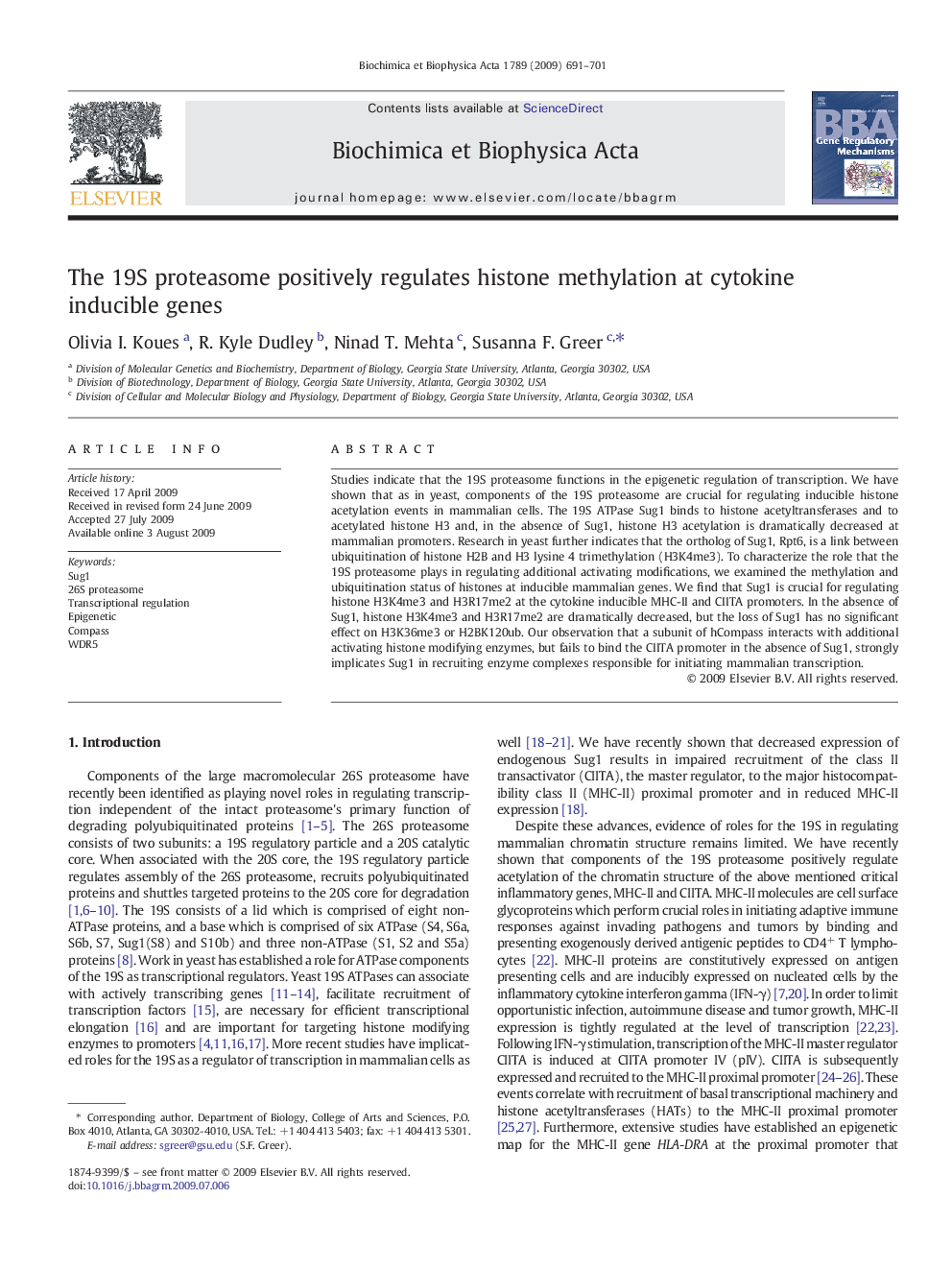| Article ID | Journal | Published Year | Pages | File Type |
|---|---|---|---|---|
| 1946803 | Biochimica et Biophysica Acta (BBA) - Gene Regulatory Mechanisms | 2009 | 11 Pages |
Studies indicate that the 19S proteasome functions in the epigenetic regulation of transcription. We have shown that as in yeast, components of the 19S proteasome are crucial for regulating inducible histone acetylation events in mammalian cells. The 19S ATPase Sug1 binds to histone acetyltransferases and to acetylated histone H3 and, in the absence of Sug1, histone H3 acetylation is dramatically decreased at mammalian promoters. Research in yeast further indicates that the ortholog of Sug1, Rpt6, is a link between ubiquitination of histone H2B and H3 lysine 4 trimethylation (H3K4me3). To characterize the role that the 19S proteasome plays in regulating additional activating modifications, we examined the methylation and ubiquitination status of histones at inducible mammalian genes. We find that Sug1 is crucial for regulating histone H3K4me3 and H3R17me2 at the cytokine inducible MHC-II and CIITA promoters. In the absence of Sug1, histone H3K4me3 and H3R17me2 are dramatically decreased, but the loss of Sug1 has no significant effect on H3K36me3 or H2BK120ub. Our observation that a subunit of hCompass interacts with additional activating histone modifying enzymes, but fails to bind the CIITA promoter in the absence of Sug1, strongly implicates Sug1 in recruiting enzyme complexes responsible for initiating mammalian transcription.
